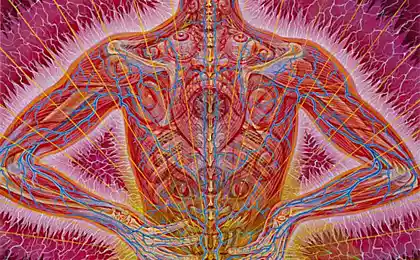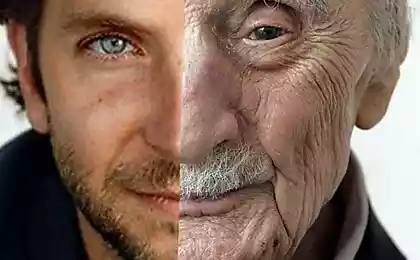426
Fief right: how idleness leads to insight

© Gil Blank
Everyone knows the story of Newton's Apple. In the theory of gravity formulated the law, which to this day is the Foundation of physical science. However, in the time of Newton the idea of gravity as a fundamental force of the Universe seemed pretentious to the extreme. In essence, then, people believed that invisible forces acting at a distance, can be either diabolical or divine. Newton himself was not easy to accept the fact "action at a distance". He even tried to dissuade people to find out the true cause of gravity, but instead advised to focus on the successful calculations and experiments.
From the point of view of modern culture of management time, sitting in the garden "in pensive mood" — a waste of time, pure and simple. This activity (or rather lack of activity) tell the recruiter that Newton was not a credible candidate. And why did Newton add to the list: "5 o'clock in the evening: to sit in the garden, think about falling objects"? Who of sane people comes to mind like sir Isaac Newton made the list?
Actually Newton was a famous predilection for strict working ethics. But he could afford to sit in the garden and laze, because it never occurred to me that this is equivalent to the waste of time. Today popular magazines advise readers to plan for "downtime" because of the requirements of corporate schedules inhuman. Of course, people do not reveal the essence of the problem, they only recommend "fit" in your schedule of free time, if it is not contrary to their duties. "Downtime" is intended to optimize our productivity. Newton literally was a master of himself. He worked when he wanted, and sat in the garden when he wanted. Of course, you will notice that it is impractical and even unattainable in the present state of Affairs. But I answer, that then we deserve the poverty of thought, which is capable of in terms of our economy.
"Newton was not buried in paper and not tearing my hair out in fear of the impending deadline of the project, trying to figure out why objects fall to the earth and the planets revolve around the Sun" Natural science before Newton was going through a transition period. From the end of XV and up to the XVIII century, the world has made the greatest scientific revolution in human history. Copernicus, Kepler, Galileo, Brahe and Newton — they all made a huge contribution to the development of Sciences. The XVII century was particularly marked by intellectual growth, which suddenly and powerfully expanded our understanding of the Universe. Our knowledge of the natural world began to accumulate in ascending progression, which is not interrupted to this day. Our understanding of nature was transformed from folk beliefs to a science. It was during this revolution occurred that the scientific community began to publish journals and organize meetings such as modern conferences. Centuries later, after Newton, natural science has achieved remarkable success. And usually the fact that Newton noticed the falling Apple, appears to us to be a happy accident. This story retold in different ways, but, whatever it was, the Apple fell on Newton, he understood and wrote the greatest treatise, Philosophiae naturalis principia mathematica ("Mathematical principles of natural philosophy"), which sets out a formal theory of gravity.
Newton was not buried in paper and not tearing my hair out in fear of the impending deadline of the project, trying to figure out why objects fall to the earth and the planets revolve around the Sun. And an expert on productivity did not look to Newton's shoulder in order to see how well it works. But we can imagine him resting on a warm summer evening in the garden: quiet, birds singing, rustling leaves in the wind, he closed his eyes or was absently looking around the yard. I guess he felt peace and tranquility. He fell into pleasant meditation. His network of passive mode of operation of the brain began to increase activity. Blood flow in breakline, in the lateral areas of the parietal cortex, the middle prefrontal cortex and anterior cingulate cortex increased as these areas enthusiastically began to consume oxygen and glucose. Network passive brain warmed up. Neurons in it areas shoot more often. Anterior cingulate cortex have been reported by the parasympathetic nervous system that all is going well, and blood pressure in Newton has decreased. His heart slowed, the heart rate became a bit more variable. Information about this physiological responses were received to the brain and the process of relaxation continued. In this state of inaction, in the absence of external task, the brain of Newton took up the case. His thoughts began to wander, to seek themselves, to become reflexive.
Thus, the nodes of the network for passive mode of the brain is in the mood to socialize. Millions of neurons in areas synchronized oscillatory electrical activity at different frequencies and their message took to travel through the brain. Since its nodes are important centres that they could get information from almost any part of the brain. Memories and associations, mathematical and spatial concepts, which were stored in areas of the parietal cortex, a network of passive mode of operation of the brain. These concepts began to seethe in the mind of Newton, while the median prefrontal cortex was reported by other sections of the network took place on the margins of his unconscious. That is the broad knowledge of Newton on physics, which were stored in his long term memory and everyday life are entirely not aware of, have now become available for consideration: because the brain didn't have to spend money on conversations, planning meetings and schedules for the day and attempt all this time.
The movement of the planets, the law of inverse squares, the attraction of gravity, mass, and acceleration — all those concepts that are studied Newton, appeared in his field of consciousness. Earlier in the day, before coming to the garden, Newton did not work the whole image, because in a normal situation they could not at once get into the focus of his attention. But the network is a passive mode of operation of the brain, in contrast, operates on the subconscious level, so that in moments of inactivity, the brain detects relationships between the concepts, without even telling us about it in the open. Sometimes, for reasons we don't yet fully understand, these thoughts are understood. During the rest of the network for passive mode of the brain can make connections between areas of the brain that are often too busy trying to fit our active life, to communicate with each other. And then the anterior cingulate cortex of Newton, is typically concerned with error detection and tracking results of conduct, afford the study of the strange and weak relationships between numbers, forces, objects and space.
Relaxed Newton hardly noticed falling from the Apple tree. However, his brain tracked the event. And such a commonplace incident as the fall of an Apple, launched a cascade of neural activity that allowed the concepts which Newton pondered, to connect in a completely new idea. Everything came together because of interference it was not. In fact, modern engineering still relies on Newtonian mechanics. Bridges, buildings, planes and cars are still being built on open them laws.
The Newton is a unit of measurement that shows how much force must be applied to one second to move the body mass of one kilogram at a rate of one meter per second (1 N = 1 kg · 1 m/S2).
In the modern school or workplace to sit in meditation is considered to be unacceptable. We can only guess how many young Isaac Newtons we repress, while trying to control children in school and at home. As far as the need for attentive and organised children is rooted in our obsession with organized adult lives?
And why is our adult life should be ordered so obsessively? We call adults who sit in reverie, eccentrics, dreamers and idlers. But to our own brain showed itself from the best side, we need a sloth. If we want to generate great ideas or just get to know yourself better, we need to stop to manage your time. At the very least, modern neuroscience is accumulating more and more evidence that health is vital to give the brain a rest.published
Source: theoryandpractice.ru























